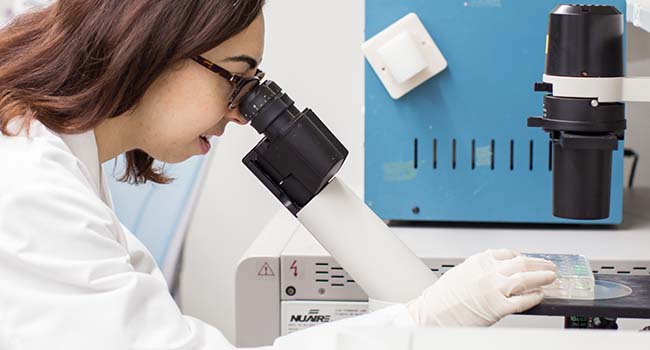Studying the role of syndecans in breast cancer metastasis to the brain

Dr. Koblinski’s research program focuses on a team approach. One area of collaboration is with Drs. Larisa Litovchick and Nicolas Farrell. Patients with high levels of proteoglycans as well as xylosyltransferases, which lead to high levels of cell surface sulfated glycosaminoglycans, have a worse prognosis in triple negative breast cancer and ovarian cancer. We have confirmed that the unique polynuclear platinum complexes (PPCs) from Dr. Farrell’s laboratory bind to sulfated glycosaminoglycan and are very effective at treating triple negative breast cancer as well as ovarian cancer. These properties would confer a unique advantage to the PPCs over cisplatin and carboplatin. My laboratory adds to the biophysical studies with expertise in cancer models of growth and metastasis as well as experience studying proteoglycans in cancer. Other collaborative projects are with Dr. Tony Faber, Oral and Craniofacial Molecular Biology, VCU School of Dentistry. Dr. Faber’s lab is centered on improving targeted therapies through combination strategies and developing targeted therapies in cancer subtypes that have no precision therapy options.
Dr. Koblinski’s group has added to his studies providing quantitative immunohistochemistry and animal expertise including established a neuroblastoma orthotopic model and providing assistance with breast cancer models.
Related:
Cancer Mouse Models Core celebrates 10 years
Massey scientists pinpoint druggable target in aggressive breast cancer
Dr. Koblinski and Dr. Farrell: With personalized medicine, a shelved cancer drug could get another shot
Contact Us

Jennifer Koblinski, PhD
Principle Investigator

Jennifer Koblinski, PhD
Principle Investigator
Pathology
Associate Professor of Pathology;
Director of the Cancer Mouse Models Core
Phone: (804) 827-0738